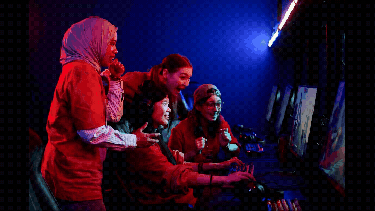Arts

Arts & Culture
Special Report
Gaming can be a machine for empathy
By letting players experience racism and decide how to react, games can create an emotional connection that sparks genuine change

Arts & Culture
Special Report
Games don't build communities – communities build games
From creators and designers to researchers and players, gaming communities prove that the real value of games lies in the worlds these communities build together

Arts & Culture
Special Report
All the world’s a game (and we are all players)
From classrooms to communities, social movements to storytelling, games aren’t diversions – they are blueprints for how we create, connect and change our world

Politics & Society
Special Report
Video games are building worlds beyond the laws of physics
Visionary architectural designs often remain unbuilt – but video games can transform these impossible structures into immersive, explorable spaces

Arts & Culture
Special Report
How the far right weaponised gamers and geek masculinity
Gaming culture didn't accidentally become male – it was deliberately marketed that way, creating the blueprint for online harassment that helped build the online far right

Politics & Society
Special Report
Video games combine every kind of storytelling – and invent new ones
Video games blend film, literature and theatre with something no other medium has – interactivity that makes you part of the story

Politics & Society
Analysis
State-based treaties aren’t symbolic - they are the foundation of Indigenous economic self-determination
As Victoria implements its treaty, forthcoming negotiations in other states are a once-in-a-lifetime opportunity to lay the foundation for the economic sovereignty of Indigenous nations

Politics & Society
Analysis
Historical accuracy matters more than ever in our polarised world
From Comfort Women memorials to researchers facing court battles, telling difficult histories is becoming a complex balancing act

Politics & Society
Opinion
US uncertainty has left key countries rethinking their Trump ties
China’s summit was more than just diplomatic theatre, but rather a carefully curated message about Beijing’s influence amid intensifying geopolitical uncertainty
